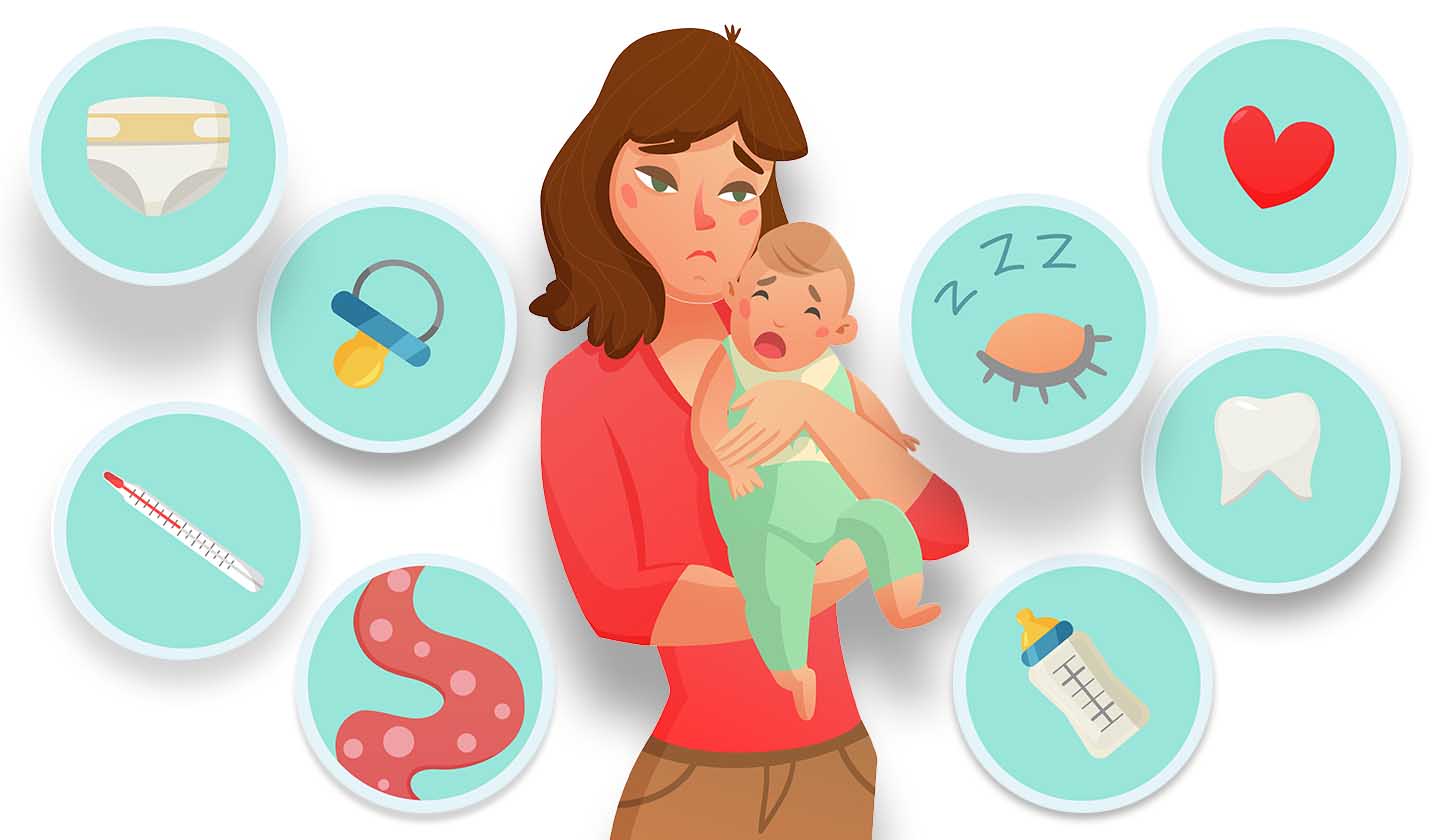Food
I don't know what to do with my baby's colic

The baby's crying can be very distressing for the parents and sometimes it can lead to anxiety. Is it hunger? Dirty diaper? Cold? Sleep? Excessive stimuli? Little teeth? Or the fearsome colic that do not let anyone sleep?
In fact, colic can be one of the causes of baby's crying. They appear when the baby is between 2 to 3 weeks old and it usually stops by the time, they are 3 or 4 months old. Therefore, take a deep breath and, with the help of this article, find out how you can help your baby.

What is colic?
Colic is a condition where babies suffer from intense and frequent belly pains that cause sudden periods of acute and persistent crying, making them irritated (babies tend to shake their arms and legs as a sign of abdominal discomfort). In general, we can say that a baby suffers from colic when he cries more than 3 hours a day, more than 3 times a week, for more than 3 weeks (known as, the rule of three).
What are the causes?
The causes of colic are not known, however there are some possible explanations:
- Immaturity of the baby's intestine (leading to excessive gas and accumulation of stool);
- Excess of gas due to the air the baby swallows while breastfeeding or taking a bottle or crying;
- Intolerance to lactose (sugar that exists in milk and that, if not digested, can ferment in the intestine, with a greater production of gases by intestinal bacteria);
- Allergy to cow's milk protein (if the baby is being fed artificial milk);
- Hyperstimulation of the baby throughout the day;
- Mother's feeding (do not forget that if the baby is being breastfed, discomfort may arise related to the foods the mother eats - citrus fruits, cow's milk, caffeine, tobacco ...).

How can I help my baby?
There are some gestures that can ease your baby's discomfort. Find out which ones:
- Try to position your baby more upright while feeding him;
- Do not forget to burp the baby after breastfeeding or taking the bottle;
- Massage the baby's belly in a clockwise direction and/or bend the legs over the belly (increasing the pressure on the baby's belly may help to pass gas or have a bowel movement);
- As a rule, the baby finds comfort when he/she is held face down across your arm or chest (this position transmits a feeling of safety and well-being to the baby, which can calm him/her down);
- The mother should avoid eating foods that may cause reactions to the baby;
- Choose milk specifically for babies with colic (anti-colic formulas)
- If lactose intolerance is suspected, the doctor may advise lactose-free milk or hydrolysed milk.
Food supplements
They help to reduce gas and abdominal discomfort. They exist in the form of oral preparations based on probiotics, extracts of chamomile or lemon balm, antiflatulent agents, such as simethicone, or enzyme supplements, such as, lactase.
However, these supplements should be considered after medical or pharmaceutical advice and are not a substitute for the baby's discomfort relief gestures that were indicated earlier in this article.
Watch for the warning signs
If you notice that your baby has lost his appetite, or has a reduced suction reflex, he is not gaining weight, has vomiting, diarrhoea or fever, you should see a doctor.
Sources
iSaúde
Farmácia Distribuição Magazine
Também lhe poderá interessar
Post childbirth
Food and comfort accessories - May your baby treasure lack nothing
Post childbirth






